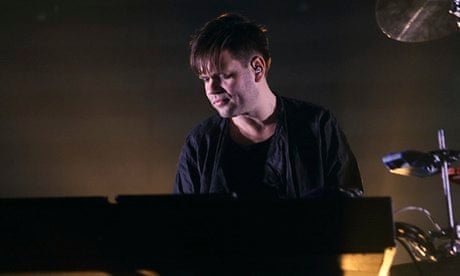It's a large step to attempt to navigate from being a laptop-based electro-auteur to a rock showman. Attempting to straddle both bases could leave any artist looking, at best, stretched, and, at worst, schizophrenic.
Danish musician Anders Trentemøller emerged seven years ago as a dance-music producer, before shifting to embrace indie-rock tropes. This year, his third studio album, Lost, was a spectral, digital-driven rumination that would have fitted immaculately on art-pop label 4AD in the late 80s, alongside dreamers such as the Cocteau Twins, This Mortal Coil and His Name Is Alive. Nevertheless, Trentemøller clearly still fancies himself as a rock star and has recently played the world's stadiums with his full band supporting Depeche Mode.
At tonight's show he is a gangling, spiky-haired silhouette, planted firmly centre-stage and hurling himself at his keyboards and performance controller as if wrestling a double-neck Gretsch. His greatest asset is vocalist Marie Fisker, who sings, as if conveying sacred texts, with the wracked intensity of Mazzy Star's Hope Sandoval, but inevitably some of Lost's delicacy and nuances are surrendered to bombast and bluster. On River of Life, you long for the band to hush their noise so you could hear Fisker more clearly; the still, phantasmagoric Never Stop Running is coarsened into a heavy-handed Scandinavian take on The Cure.
The dichotomy is most evident on the older, glockenspiel-driven track Miss You, which opens like Ryuichi Sakamoto and by its piledriving conclusion could be Nine Inch Nails. Trentemøller is to be commended for attempting to communicate his Pro Tools symphonies to a rock crowd, but his fragile music remains best appreciated on headphones, in the small hours, alone.

Comments (…)
Sign in or create your Guardian account to join the discussion